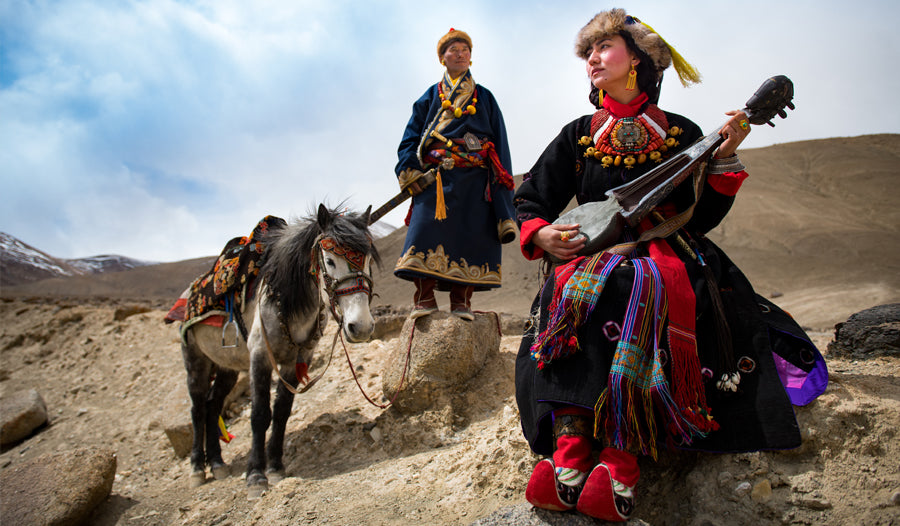
An Ode to Ladakh

“Some of the world’s finest wool is naturally produced in Ladakh as it is stimulated by the intense winter cold of windswept plateaus and the high altitude of the land”, says Jigmat Norbu. He and his wife Jigmat Wangmo, co-founded Jigmat Couture, a slow-fashion and ethical studio based in Leh, Ladakh, to preserve and promote indigenous textile traditions that involve the hand-spinning and hand-weaving of local wools for attire and accessories.

Ladakh is a Union Territory located in the northern most part of India and in the Great Himalayas. Ladakh- meaning the Land of High Passes- is a high altitude desert. It is a land of extraordinary natural beauty as manifest in blue lakes, stark lofty mountains, open skies, vast silent spaces, and high mountain passes; a land of Buddhist stupas, temples and monasteries; of colourful prayer flags fluttering in the breeze.

The region is home to diverse indigenous livestock and animals – sheep, goat, yak and camel- that have adapted to the terrain and climate. The Changthangi goat whose undercoat yields the fine, luxury pashmina wool, world famous as `cashmere’, is a native of higher reaches of the area.
To nurture the indigenous traditions, culture and textile heritage of Ladakh, the couple built a traditional-style building housing a museum, studio and workshop where they design garments of two distinct expressions. The Couture line features rich, sumptuous patterned silks and brocades for traditional garments that have a predominantly local appeal, and the muted Fusion line features garments of warm, earthy colours and fluid silhouettes that would appeal to customers worldwide.

Hair and wool of different animals are hand-processed, hand-spun and hand-woven, and used according to the end product from garments to accessories at Jigmat Couture. Some fabrics are patterned by different techniques such as resist-dyeing. The couple also works with local artisans and self-help groups to develop skills of local artisans in hand-spinning, hand-weaving, natural dyeing and surface design of fabrics. They also source fabrics from artisans who create fabrics the traditional way.

“Many people from remote villages of Ladakh are abandoning the harsh realities of farming and herding animals for a more comfortable urban life. If our generation does not practise traditional craft and textile techniques, the art will die out. So it is our responsibility to nurture it and create global awareness of Ladakh’s beautiful culture, crafts and textiles”, says Jigmat.
Written by Brinda Gill
Find out more about Jigmat Couture by following them on Instagram or by visiting their website: www.jigmatcouture.com
Images courtesy Behzad Larry
